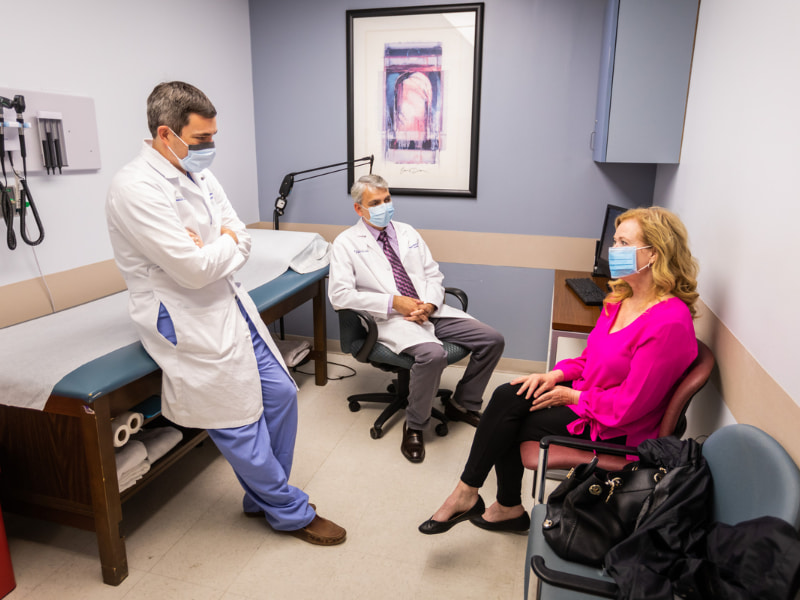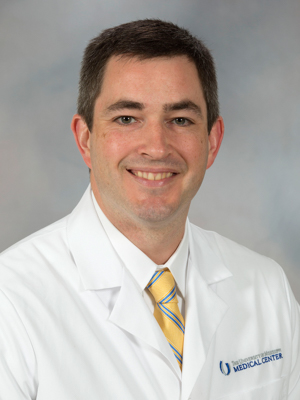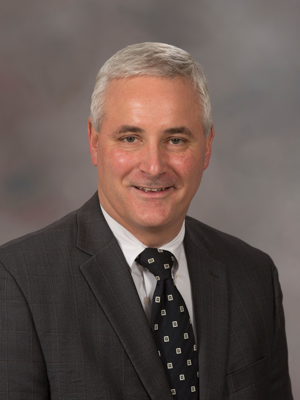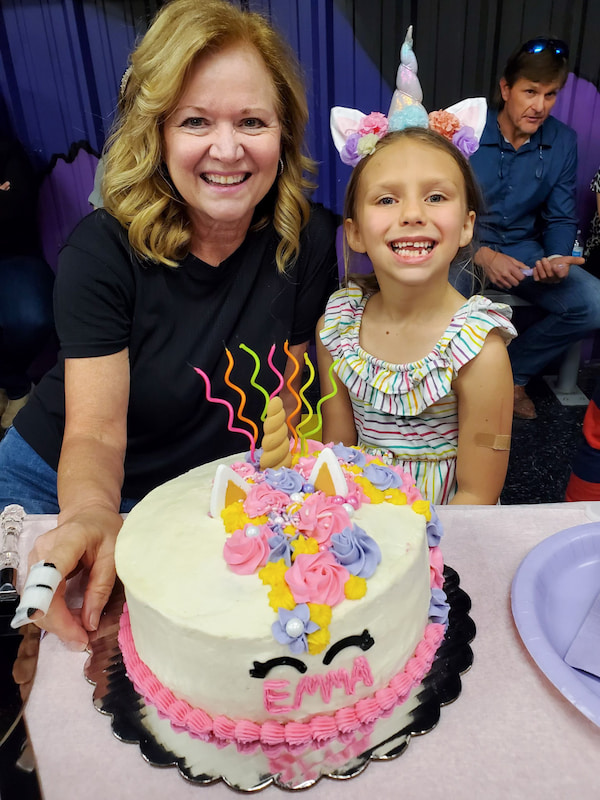Medical Center achieves top designation for stroke care

Judy Herrington is a stroke survivor whose caregivers affectionally call their “miracle patient.”
Nurses at the University of Mississippi Medical Center zeroed in on a change in her neurological status while Herrington was recovering from an elective procedure. “They immediately activated our stroke care team,” said Neal Kiihnl, manager of UMMC’s stroke outreach program.
The Madison resident was quickly given a clot-busting medication for ischemic stroke after the stroke team consulted with her primary care providers. Her full neurological workup included scans, “and the stroke team saw the clot could be removed from her brain. She was taken to Interventional Radiology for surgery,” Kiihnl said.
“From the time that the stroke alert went out, in under an hour and a half she’d already had the procedure to remove the clot from her brain,” he said. “Time is brain. You want to eliminate that clot as soon as possible.”

Herrington’s care at the state’s only academic medical center was provided through UMMC’s advanced Comprehensive Stroke Center. That new designation, recently awarded by The Joint Commission, is a significant step up from Primary Stroke Center, a designation UMMC held during Herrington’s hospitalization in 2019.
The Comprehensive Stroke Center classification is “the most demanding stroke certification … designed for those hospitals that have specific abilities to receive and treat the most complex stroke cases,” The Joint Commission says.

“This is recognition and validation of the high level of multidisciplinary care that we provide, and have been providing for a long period of time,” said Dr. Chad Washington, chair of the Department of Neurosurgery.
“This demonstrates that we have the processes at UMMC to make sure we continue to evolve our care,” said Washington, who also is Comprehensive Stroke Center director.

“With our entire continuum of care, we have a specialty expertise that is unmatched in the state of Mississippi,” said Britt Crewse, chief executive officer of UMMC Adult Hospitals. “We are extremely proud of the care that we are providing and that we will provide as a Comprehensive Stroke Center.”
“It would have been a devastating stroke had I not gotten the good care that I did,” said Herrington, who was well enough to return home three or four days after she was admitted and went back to her metro-area job as a physical therapist and director of rehabilitation in about six weeks.
As a Comprehensive Stroke Center, UMMC deploys a wide range of advanced care, beginning even before a patient arrives at the Emergency Department. Patients are quickly diagnosed and treatment plans created following brain imaging scans and neurological evaluations, and they receive clot-busting medications and surgery when needed.
When a stroke patient is being transported by ambulance, Mississippi MED-COM “notifies UMMC prior to their arrival, and our stroke team is waiting for that patient,” Kiihnl said. “EMS companies are going to take patients with stroke symptoms to a Comprehensive Stroke Center first.
“The patient will go directly to CT imaging, and if they have a brain bleed, neurosurgery is consulted. If there is not a bleed, neurology will begin treatment,” Kiihnl said. “Processes immediately are activated to notify the proper teams who will take care of that type patient.”
An ischemic stroke occurs when a blood clot, known as a thrombus, blocks or plugs an artery leading to the brain. That prevents the brain from getting oxygen and nutrients, and brain cells begin to die within minutes. It’s the brain’s version of a heart attack.
Medical Center stroke team experts also treat hemorrhagic stroke, an especially severe event occurring when a blood vessel in the brain ruptures and bleeds, sometimes uncontrollably, disrupting normal circulation of blood in the brain.
The Comprehensive Stroke Center is supported by state-of-the-art technology and facilities, including a six-bed dedicated stroke unit and a 20-bed neurosciences intensive care unit. Caregivers include neurorehabilitation specialists and nurses who have special certifications in stroke treatment. All of the physician providers have had subspecialty fellowship training specific to stroke care.
The Medical Center is the recipient of the American Heart Association and American Stroke Association Get With the Guidelines Target: Stroke Honor Roll Elite Plus Award and has met criteria for the Get With the Guidelines Gold Plus Achievement Award for 10 consecutive years. The honors recognize stroke centers for their commitment to providing patients with rapid diagnosis and treatment according to the latest evidence-based standards and guidelines.
Quickly identifying a patient who’s having a stroke is so important that Medical Center employees who work with and around patients on the Jackson campus are trained to recognize symptoms, Kiihnl said.
A stroke patient can expect not just aggressive medical treatment and rehabilitation, but education and prevention measures to help them reduce the risk of a second stroke.
“Stroke patients receive all of the expertise needed through the continuum of care,” Washington said. “It’s all under one roof.”
Herrington did have a second stroke, but milder than the first. After becoming nauseated during the night, her vision and depth perception was off. “I went to an urgent care, and they told me it was a stomach bug and probably not a stroke,” Herrington said. “But my vision never came back.
“When it didn’t clear up, I called Dr. (Shashank) Shekhar,” an assistant professor of neurology at UMMC. “He found another clot that was at my vision center.”
Today, Herrington is semi-retired at 62 and works at the office of her husband, Dr. Jimmie Herrington, a dentist. “There were lots of things that were miraculous about my stroke,” she said. “The recovery was miraculous for sure. And it happened on a holiday weekend, and Dr. Chad Washington was on call. They were able to take care of me so brilliantly and so fast.
“I always knew that if I was really, really sick, UMMC was where I would want to go,” she said. “I was really impressed with everyone in the organization.”

“We’ve had incredible leadership from Dr. Washington, Neal and so many others who touch this program. There have been hundreds of employees who have been instrumental in getting us to this point,” Crewse said.
“This has been a several-year journey, but a journey to excellence.”
Herrington’s recovery “is the outcome that we want all of our stroke patients to have,” Kiihnl said. “Our goal is to do everything we can to give them their best chance to get back to their best life.”
“I want to call out Dr. Washington and Dr. Shekhar. They have been amazing to me,” Herrington said.
“Today, I was decorating a cake with my granddaughter, and she’s 9. We were making a heart-shaped cake.
“I’m able to do that because of what UMMC did for me.”


